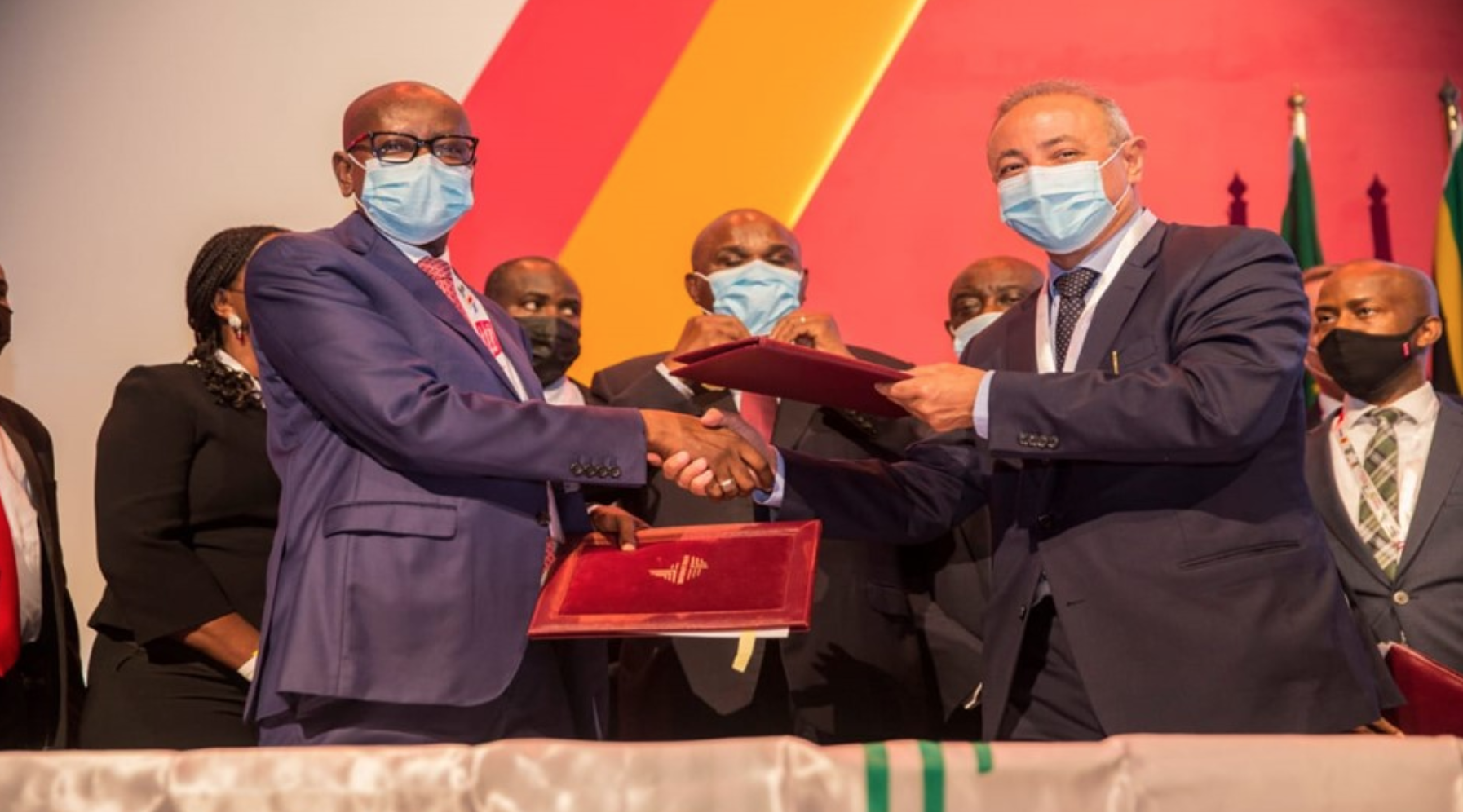The African Export-Import Bank (Afreximbank) showed up for Nigeria’s oil sector this week in Durban, during the Intra-African Trade Fair 2021. The bank has signed three separate deals totaling almost $2bn with the state-owned Nigerian National Petroleum Corporation (NNPC), indigenous operator Eroton Exploration & Production and new Nigerian independent Mars Exploration & Production.
A $1.04 bn exploration deal with NNPC
The first agreement is a $1.04 billion facility with the NNPC to finance oil exploration in Nigeria. It notably notably comprises a pre-export/shipment finance facility underpinned by a forward sale agreement (FSA) and offtake contracts from the NNPC acting as the borrower and seller.
Under the terms of the contract, NNPC will enter into an FSA within which it shall deliver 35,000 barrels of crude oil per day (bopd).
The NNPC was represented by Umar I. Ajiya, Group Executive Director, Finance & Accounts while the Afreximbank was represented by Amr Kamel, Executive Vice President, Business Development & Corporate Banking.
A Second Lending Facility to Eroton E&P
The second agreement is a term-sheet that lays the basis for the approval of a $750m senior secured reserve-based lending facility with Eroton Exploration & Production, the Nigerian company that operates OML 18 with a 27% interest in the Niger Delta.
IIt was signed by Chairman Onajite Okoloko. Other parties in the deal are Shell Western Supply & Trading and Midwestern Oil & Gas Company Limited. Midwestern is an indirect owner of Eroton E&P through its 60% ownership of Midwestern Leon Petroleum, which in turns owns Eroton E&P’s mother company Martwestern.
Out of the full facility, $196m is expected to refinance Eroton’s current senior bank debt. The remaining is expected to help Eroton finance the acquisition of an additional 18% economic interest in OML 18 from Sahara Field Production Ltd (SFPL, 16.2%) and Bilton (1.85%).
Afreximbank and Eroton have been working together since the Nigerian company acquired Shell’s interest in OML 18 back in 2015. The bank had then provided a $663m syndicated reserve base lending facility to Eroton.
Financing AA&R’s Acquisition Spree
The third and last deal is a $274m senior secured reserve-based lending facility to Mars Exploration & Production, a subsidiary of Nigeria’s AA&R Group. AA&R is in the process of acquiring several offshore licenses in Nigeria and details on the transaction are available within the Hawilti+ research terminal.

